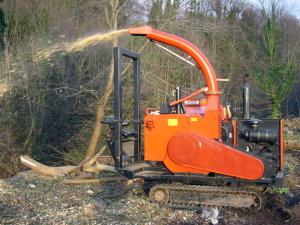 Many of you have no doubt heard the infamous quote by William Faulker, “In writing, you must kill your darlings.” If you haven’t, or you don’t understand this, it means that in our writing, we authors at times may inject characters, scenes or story elements because WE like them, not because the story demands them. I’ve certainly battled this myself. In a recent book I was writing, I had an idea to stick an Airedale in there. I have an Airedale, love them to pieces, and I thought I could write one in just for kicks. I fully intended to, knowing from the get-go that it had nothing to do with the story and was just a bit of fluff that served no purpose except I liked it. Well, the story unfolded, I wrote the whole book and, guess what? No Airedale. There was no place for it in the story. Oh, sure, I could go back and shoehorn it in; I could jam it in there somewhere. But the story didn’t call for it. The story didn’t demand it. Ergo, no Airedale. Continue reading “Why Can’t Writers Kill the Little Darlings?”
Many of you have no doubt heard the infamous quote by William Faulker, “In writing, you must kill your darlings.” If you haven’t, or you don’t understand this, it means that in our writing, we authors at times may inject characters, scenes or story elements because WE like them, not because the story demands them. I’ve certainly battled this myself. In a recent book I was writing, I had an idea to stick an Airedale in there. I have an Airedale, love them to pieces, and I thought I could write one in just for kicks. I fully intended to, knowing from the get-go that it had nothing to do with the story and was just a bit of fluff that served no purpose except I liked it. Well, the story unfolded, I wrote the whole book and, guess what? No Airedale. There was no place for it in the story. Oh, sure, I could go back and shoehorn it in; I could jam it in there somewhere. But the story didn’t call for it. The story didn’t demand it. Ergo, no Airedale. Continue reading “Why Can’t Writers Kill the Little Darlings?”
Tag: murder your darlings
On Murdering Your Darlings

We writers are known for killing off characters in creative ways. Wood chippers are a favorite method. (Oh, I’m the only one who does that? Uh…never mind. I’ll just…move that thing back into the garage.) Yet the writing adage “murder your darlings” did not originally refer to killing characters but cutting out unnecessary words. While William Faulkner and Elmore Leonard have been credited with it, the original quote is attributed to Sir Arthur Quiller-Couch, who wrote:
“Whenever you feel an impulse to perpetrate a piece of exceptionally fine writing, obey it—whole-heartedly—and delete it before sending your manuscript to press. Murder your darlings.”
Continue reading “On Murdering Your Darlings”
